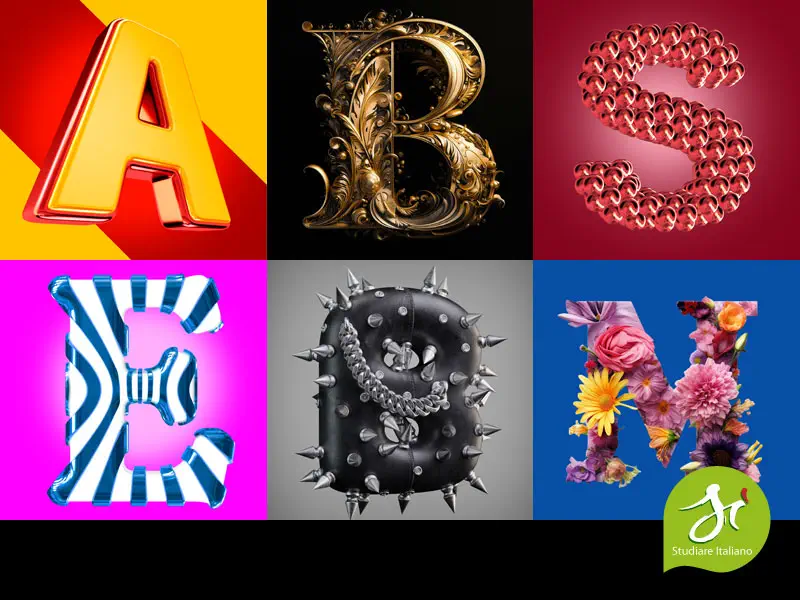If we ask a student of Italian what their goals and interests are regarding language study they will almost always answer “to converse”. If you are also one of them perhaps you might be interested in these thoughts and suggestions for improving your Italian. The fact that most students want to “converse” is not surprising because it is one of the most important activities in everyday life and one that allows us to relate to others.
It is often thought that language is something to be studied (rules, memorized verbs) and instead it is something very practical and alive. Speaking has a very specific purpose. To convey a message, a feeling, an emotion.
But how does one get to “speak” in Italian? It is not simply a matter of memorizing words and grammar. Of course, the study of grammar and vocabulary is important, but it is not enough; something more is needed. Knowing and speaking a language is something more complex but also much more challenging. Speaking a foreign language means expressing yourself like the people who live in the country of the language you want to learn and who live in a common sociocultural context. Who have a similar history, customs and mentality.
From preparation to revision
Having a rich vocabulary and knowing grammar well are good foundations from which to start. So how do we expand our vocabulary and improve grammatical and syntactic competence? Simply put, by being in contact as much as possible with language that has rich and varied content.
For example, by listening to people’s conversations, watching television, series and movies, reading books and magazines, listening to music and podcasts, or even using social networks. One can also consult books and websites that contain lists with the most frequently used words. Especially in the beginning, they can be useful to learn the basic words that are needed in more situations and to be more precise.
And then learning the language in context, making maps or lists with word categories and especially using what you learned right away. Using everything you learn in the proper context is the best way not to forget it. There are people who do not like improvisation, and for them, it is advisable to prepare some useful “model sentences” to use in the situations they will find themselves in.
Also, thinking in Italian to yourself or out loud is a good exercise. Think in Italian about the day’s commitments and if you can, say them out loud. If your next destination is the supermarket write the shopping list in Italian and when you are in front of the products name what you see. Go up the stairs and count the steps so you go over the numbers. More generally try to think in Italian and it will be easier and more automatic when you have to talk to someone.
Most of all, practice is of great importance. In order to improve, you need to practice regularly in situations that are varied and appropriate to your level. When participating in a conversation, it is best to avoid one-word answers and try to give more information and details. For example, if during a dinner party, you are asked if you like the specialty on your plate, don’t just say “yes or no” but try to describe its taste and texture. Or when you listen to a song, watch a movie or are in front of a beautiful painting or landscape try to describe its colors and the feeling it causes you. Tell what struck you about the main character in a novel or movie, describe him physically and character-wise, talk about the context of the movie. Be careful, however, not to reveal the ending!
Finally, another aspect to consider in improving your Italian is to reflect on your speech. What can you improve? What were your weak points? Taking note of mistakes and seeing the evolution over time allows you to be aware of your strengths and weaknesses-it is a great starting point for improvement. Try saying aloud again a sentence that didn’t sound right or the word that didn’t come to mind. And still, keep in mind that the mistake is not bad-it helps you see where you need to improve and where you need to practice
Correctness is important but….
Correctness is important because a sentence full of errors can make it difficult to understand. That said, however, concern for correctness should not stop you. Your interlocutor can understand you even if the sentence is not perfect. And if you can’t remember a verb or word, don’t stop. Look for a synonym or other words so you can still say what you mean.
When we are young and learning to speak our vocabulary is very limited, we don’t know how to put words in order, and pronunciation is often imperfect. Others almost always understand us, though. Obviously, if you are preparing for a certification exam, correctness has much greater importance and you will have to be very accurate when you speak. But in everyday life always wanting to be perfect can be an obstacle and cause frustration. Remember that even when you feel like you are not improving or you only notice errors in reality the language is evolving.
Unfortunately, you have to accept frustration and consider that you cannot speak like you do in your own language. Try to simplify your thinking, don’t make sentences too long and complicated and connect them well together. This will help you to be more fluent. It is better to make simple and clear sentences that are well connected to each other than to make long and complicated speeches that are difficult to manage.
Connective words can help you in this: they are words that allow you to connect sentences logically. Some examples: and, or, that is, in fact, also, because, since, while… And don’t forget gestures! Italians also speak with their hands. If you know them and use them correctly your communication skills will be on a higher level.
One very important thing: to know those words and expressions that are used every day such as “then, therefore, look, sorry, really”. These are words that allow you to take time to think, organize your sentences, keep the conversation alive and make it seem more authentic and natural. One of the most widely used and certainly also well-known is “then” (allora). But we also have several other very useful words: therefore, but, come on, let’s say (quindi, ma, dai, diciamo). To receive approval and be sure that the other person is listening to us we can use “right?” (giusto?). There are many useful words that can help in this way.
Another important aspect when speaking a language is to recognize the context of the situation and to choose the proper way to express yourself. If you speak perfectly but like a printed book at a dinner with friends or conversely with a vocabulary full of colloquial expressions in a formal situation such as a business meeting you will not make a good impression. Knowing the culture, habits, quirks and passions of Italians will make conversation easier and more pleasant. There will be an attunement and you will feel more comfortable and it will be easier to express yourself correctly according to the situation.
So much for talking and singing
Every day we send hundreds of texts and emails. If the situation allows why not respond with a voice message or phone call? Phoning for many people is a great challenge; not having the person you are talking to in front of you does not allow you to see the expressions on their faces. So it is a more difficult but certainly useful exercise.
If you are into literature read aloud and memorize a few lines or phrases from the book you are reading. Your pronunciation will make progress and when there is an opportunity you can recite the sentence you have learned and your listeners will be very impressed. You can record your voice and listen to yourself. And notice the improvements. You can do the same thing with a series or movies.
Do you sing like a bird? There are many videos of songs with subtitles on YouTube to sing the songs with the right words. You can sing alone or organize a night with friends or karaoke.
Also, there are many Italian people who are interested in learning a foreign language and you can make an appointment with one of them for a language exchange.
Getting out of your comfort zone can bring pleasant surprises
If you are living or studying in Italy, take advantage of this ideal setting. Getting yourself busy with a hobby or exploring a new interest is a great way to indirectly improve your language without fatigue.
Are you a soccer fan? Go to the stadium or hang out at a bar where you know fans of the team you like to gather and exchange opinions about the game or the latest soccer player bought or sold.
Do you love fashion? Go into any store that inspires you and ask the saleswoman to help you while shopping. Is the bus not running? Try asking the person next to you if they have been waiting for a long time.
Have you always wanted to act but never had the chance? If you enroll in a drama class you will work hard on pronunciation, you will learn new words and expressions, and you won’t have the pressure of constantly thinking “how do I say it” or “what do I say”.
Going to the park with your dog can generate unexpected conversations. Dog owners really enjoy chatting with each other as their dogs make friends.
If you have been lucky enough to fall in love with an Italian person, know that there is no better way to learn and improve very quickly.
If you have a chance organize a trip. You will find yourself in many situations and you will have many opportunities to converse.
And if you are not yet enrolled in a course you should know that studying with native speakers in some of the most beautiful cities in the world with fellow students from all over the world is the perfect situation and a very engaging experience to perfect your Italian. And if you participate in the proposed activities or organize an aperitivo, you will get to know your classmates better and have lots of conversation starters.
Jump in and have fun!
You’re at the bar, at a restaurant, at a new class. Or the phone is ringing and someone wants to talk to you. Or maybe you got a voice message and need to respond. Or maybe you’re on a stage or in front of an audience. You are finally about to speak in Italian.
Jump in and focus only on what you want to say and want to communicate. Don’t worry if your language is not perfect. Italians are usually overjoyed to hear a foreigner speaking their language; they will try to help and understand you in every way. You will see that even if you make some mistakes you will still be able to make yourself understood. Above all, observe the path you have taken. You have achieved the goal of speaking in a language that was previously unknown and incomprehensible to you and of which you could not pronounce a single word. Or maybe pizza, pasta, hello and little more. To know a foreign language and not use it is to give up a unique experience.
Start or keep talking because the most effective way to improve and maintain proficiency over time is just to talk.



